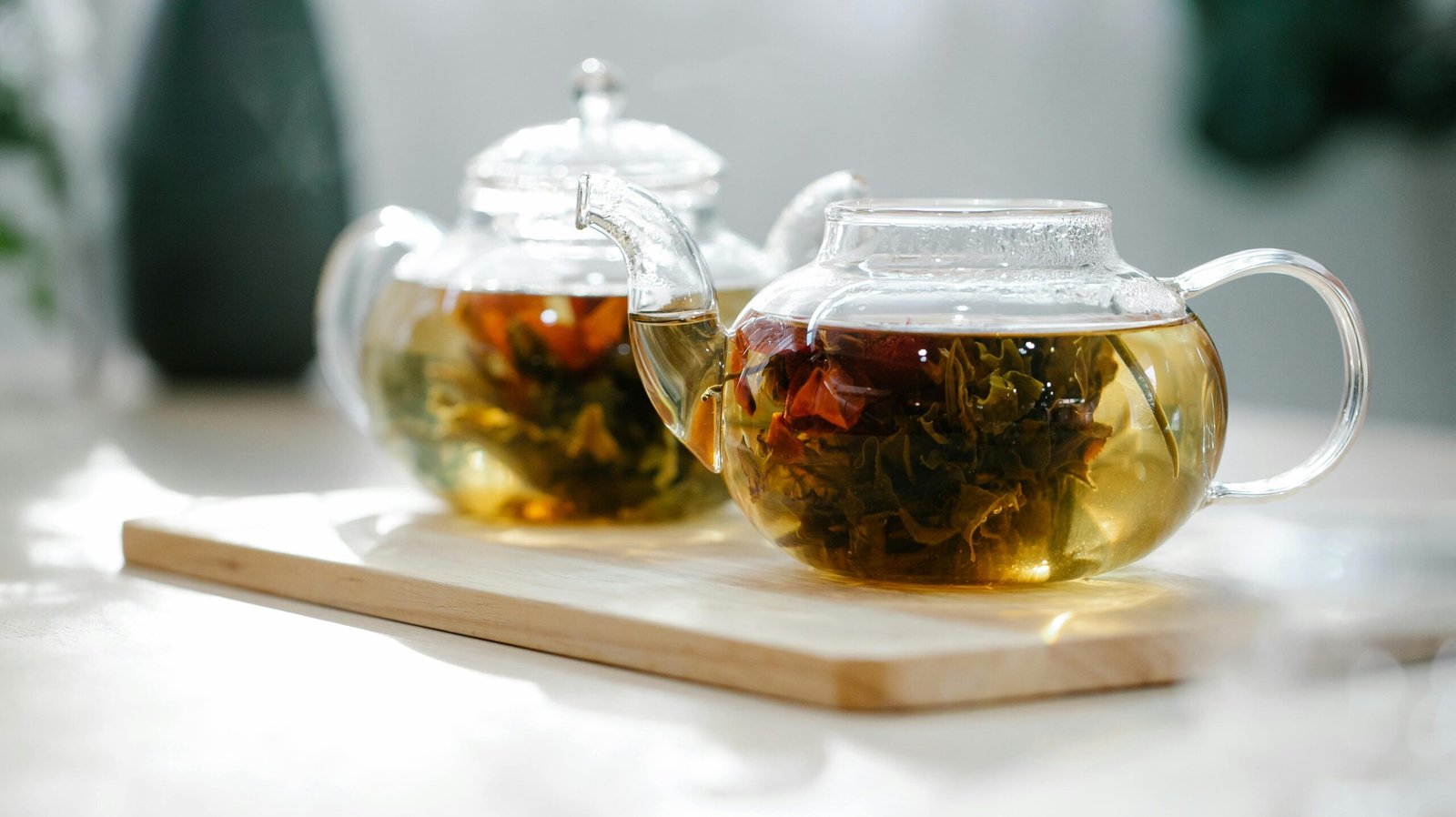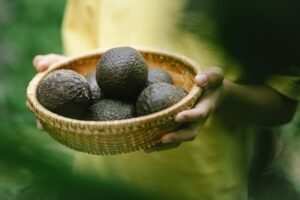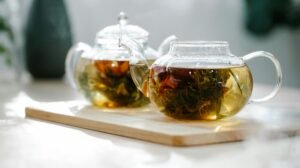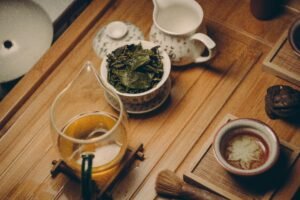Health Benefits of Drinking Herbal Tea
Introduction to Herbal Tea
Herbal tea has gained significant popularity in recent years due to its numerous health benefits and refreshing taste. Unlike traditional teas such as black or green tea, which are derived from the Camellia sinensis plant, herbal teas are made from various herbs, fruits, flowers, or spices. This diverse range of ingredients not only contributes to their unique flavors but also offers a plethora of health advantages.
Boosted Immunity and Antioxidant Power
Drinking herbal tea regularly can significantly boost your immune system. Many herbal teas are rich in antioxidants, such as flavonoids and polyphenols, which help combat oxidative stress in the body. Antioxidants protect cells from damage caused by free radicals, thereby reducing the risk of chronic diseases and promoting overall well-being.
Improved Digestive Health
Certain herbal teas, such as peppermint and ginger tea, are renowned for their ability to aid digestion. Peppermint tea, for example, can alleviate bloating and indigestion by relaxing the digestive tract muscles. Ginger tea, on the other hand, stimulates digestion and helps in soothing gastrointestinal disturbances like nausea.
Stress Relief and Mental Clarity
Herbal teas like chamomile and lavender are prized for their calming properties. Chamomile tea, often consumed before bedtime, promotes relaxation and can improve sleep quality. Lavender tea has similar effects, reducing anxiety and promoting a sense of calmness. Regular consumption of these teas can contribute to better stress management and enhanced mental clarity.
Weight Management Benefits
For those looking to manage their weight naturally, certain herbal teas can be valuable allies. Green tea, although technically not an herbal tea, is often included in this category due to its weight loss benefits. It contains catechins that may enhance metabolism and promote fat burning. Additionally, herbal blends like dandelion or nettle tea can act as diuretics, helping to reduce water retention.
Skin Health and Anti-Aging Properties
The antioxidants found in many herbal teas can also benefit your skin health. Rooibos tea, for instance, is rich in alpha hydroxy acid and zinc, both of which promote healthy skin and may help in reducing wrinkles. Drinking herbal teas with skin-boosting properties can complement your skincare regimen and contribute to a more youthful appearance.
Potential Anti-inflammatory Effects
Some herbal teas possess anti-inflammatory properties that can help alleviate conditions such as arthritis or inflammatory bowel diseases. Turmeric tea, known for its active compound curcumin, has potent anti-inflammatory effects that may rival pharmaceuticals in efficacy. Incorporating turmeric tea into your daily routine could potentially reduce inflammation and associated symptoms.
Conclusion
In conclusion, the health benefits of drinking herbal tea are diverse and well-documented. From boosting immunity and aiding digestion to promoting relaxation and supporting weight management, herbal teas offer natural solutions to many health concerns. Whether enjoyed hot or cold, herbal teas provide a flavorful way to hydrate while reaping the therapeutic benefits of nature’s bounty.Health Benefits of Drinking Herbal Tea
Choosing the Right Herbal Tea for You
With so many varieties of herbal teas available, it’s important to choose ones that suit your specific health needs and taste preferences. Here are some popular options:
1. Peppermint Tea
Peppermint tea is renowned for its refreshing taste and digestive benefits. It can soothe an upset stomach, reduce bloating, and promote overall digestive comfort. Enjoy a cup after meals to aid digestion or as a refreshing pick-me-up throughout the day.
2. Chamomile Tea
Chamomile tea is celebrated for its calming properties, making it an excellent choice for relaxation and stress relief. It can also help improve sleep quality, making it a popular bedtime beverage. Incorporate chamomile tea into your evening routine to unwind and promote restful sleep.
3. Ginger Tea
Ginger tea is revered for its spicy, warming flavor and its ability to support digestion and reduce nausea. It’s particularly beneficial for soothing gastrointestinal discomfort and can be enjoyed both hot and cold depending on your preference.
4. Green Tea
Green tea, while technically not an herbal tea, is often included in discussions of health-promoting teas due to its high antioxidant content. It contains catechins, such as EGCG (epigallocatechin gallate), which have been studied for their potential benefits in weight management and cardiovascular health.
5. Rooibos Tea
Rooibos tea, also known as red tea, is caffeine-free and packed with antioxidants. It’s particularly rich in alpha hydroxy acid and zinc, making it beneficial for skin health and potentially reducing the signs of aging. Enjoy rooibos tea hot or cold as a flavorful and skin-nourishing beverage.
6. Turmeric Tea
Turmeric tea is prized for its anti-inflammatory properties, thanks to its active compound curcumin. It may help reduce inflammation in the body and alleviate symptoms of conditions like arthritis or inflammatory bowel diseases. Incorporate turmeric tea into your daily routine for its potential health benefits.

How to Brew Herbal Tea for Maximum Benefits
To extract the full range of benefits from your herbal tea, follow these simple brewing tips:
- Use Fresh Water: Start with fresh, cold water to ensure the best flavor and nutrient extraction.
- Correct Temperature: Different herbal teas require different brewing temperatures. For example, delicate flowers like chamomile should be steeped in water just below boiling, while green teas benefit from slightly cooler water to prevent bitterness.
- Proper Steeping Time: Herbal teas vary in their steeping times. Generally, steeping for 5-7 minutes allows the herbs to release their beneficial compounds without becoming overly bitter.
- Cover While Steeping: Covering your tea while it steeps helps to retain the volatile oils and aromas that contribute to its flavor and health benefits.
- Strain Before Serving: Remove the herbs from your tea before serving to prevent over-steeping and bitterness.
Incorporating Herbal Tea into Your Daily Routine
To incorporate herbal tea into your daily routine effectively:
- Choose Varieties Wisely: Select herbal teas based on your specific health goals, whether it’s digestive support, stress relief, or skin health.
- Enjoy Regularly: Aim to drink herbal tea regularly to experience cumulative health benefits over time.
- Experiment with Blends: Mix and match different herbal teas to create unique flavor profiles and enhance their therapeutic effects.
- Consider Timing: Some herbal teas are best enjoyed at specific times of the day, such as calming chamomile in the evening or invigorating peppermint after meals.
Conclusion
In conclusion, the world of herbal tea offers a vast array of flavors and health benefits to explore. Whether you’re looking to support your immune system, improve digestion, reduce stress, or enhance your skincare routine, there’s a herbal tea for you. By incorporating these natural beverages into your daily life and following simple brewing tips, you can harness the power of herbs to promote overall well-being and vitality.
Exploring Lesser-Known Herbal Teas
Beyond the popular herbal teas mentioned earlier, there are several lesser-known varieties that offer unique health benefits:
1. Hibiscus Tea
Hibiscus tea is vibrant in color and rich in antioxidants like vitamin C. It has been studied for its potential to lower blood pressure and improve heart health. Enjoy hibiscus tea hot or cold for a refreshing and health-promoting beverage.
2. Lemon Balm Tea
Lemon balm tea has a gentle lemony flavor and is prized for its calming effects. It’s often used to reduce anxiety and promote relaxation. Lemon balm tea can be enjoyed throughout the day as a soothing herbal infusion.
3. Echinacea Tea
Echinacea tea is well-known for its immune-boosting properties. It may help reduce the duration and severity of colds and flu symptoms due to its antiviral and anti-inflammatory effects. Drink echinacea tea at the onset of illness to support your immune system.
4. Valerian Root Tea
Valerian root tea is commonly used as a natural remedy for insomnia and sleep disorders. It has sedative properties that promote relaxation and improve sleep quality. Valerian root tea is best consumed in the evening to aid in winding down before bedtime.
5. Elderberry Tea
Elderberry tea is packed with antioxidants and vitamins that support immune function. It’s often used to prevent and reduce the severity of colds and flu. Elderberry tea has a pleasant berry flavor and can be enjoyed year-round for its immune-boosting benefits.
6. Passionflower Tea
Passionflower tea is renowned for its calming effects on the nervous system. It can help alleviate anxiety, promote relaxation, and improve sleep quality. Passionflower tea is a gentle herbal remedy that can be enjoyed in the evening or whenever stress relief is needed.
Herbal Tea and Hydration
In addition to their health benefits, herbal teas contribute to your daily hydration needs. Unlike caffeinated beverages like coffee or traditional teas, herbal teas are typically caffeine-free, making them a suitable choice for staying hydrated throughout the day without interfering with sleep patterns.
Safety Considerations
While herbal teas are generally safe for most people when consumed in moderation, it’s essential to be mindful of potential allergies or interactions with medications. If you have any pre-existing health conditions or concerns, consult with a healthcare professional before incorporating new herbal teas into your routine.
Embracing the Benefits of Herbal Tea
Whether you’re seeking digestive support, stress relief, immune system boost, or simply a flavorful alternative to water, herbal teas offer a natural and enjoyable way to enhance your well-being. Experiment with different varieties, brew methods, and enjoy the soothing benefits that herbal teas have to offer.
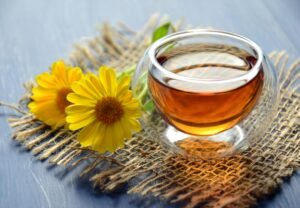
Conclusion
In conclusion, the world of herbal tea is rich with diverse flavors and potent health benefits. From soothing chamomile and peppermint to immune-boosting echinacea and elderberry, there’s a herbal tea to suit every taste and health goal. By incorporating these natural beverages into your daily routine and exploring their unique properties, you can enhance your overall health and vitality.
